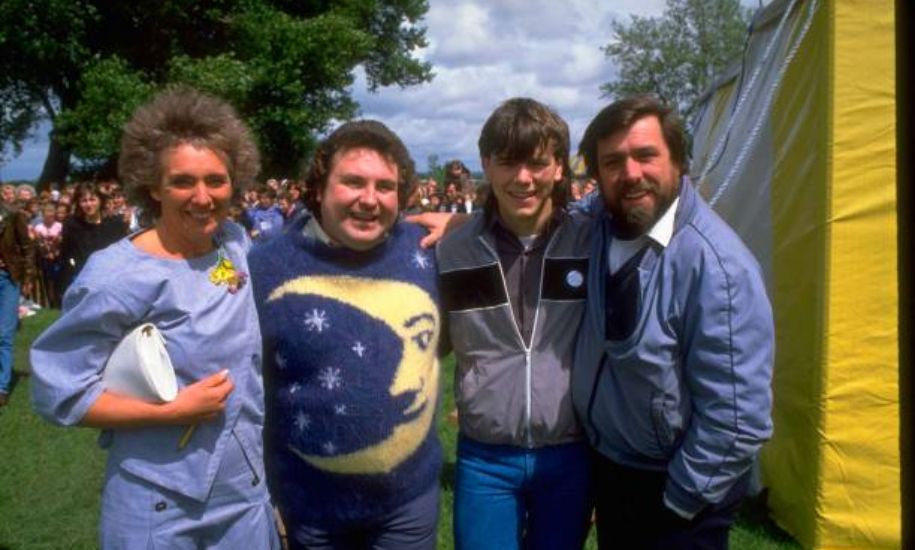Sue Johnston: The Enduring Star of British Television Icon

Sue Johnston, born Susan Wright on December 7, 1943, in Warrington, Cheshire, England, is a celebrated British actress best known for her impactful roles in some of the most beloved British television dramas and comedies. With a career spanning over four decades, Johnston has become a household name, admired for her authentic portrayals of working-class women and matriarchs, her contribution to social commentary through drama, and her resilience both on and off the screen.
Sue Johnston’s Early Life and Education
Sue Johnston was born into a working-class family in the North West of England. She studied at the Webber Douglas Academy of Dramatic Art in London, setting the foundation for what would become a prolific acting career. Before breaking into mainstream television, Johnston worked in various jobs, including at the tax office and in social work, experiences that would later inform her deeply empathetic portrayals on screen.
Sue Johnston’s Career: A Journey of Authenticity and Range
Johnston’s breakout role came in the early 1980s when she portrayed Sheila Grant in the Channel 4 soap opera Brookside (1982–1990). The show, known for its gritty realism, was a pioneer in British TV for addressing controversial topics. Her portrayal of Sheila, a mother navigating complex family dynamics and trauma, was widely praised and helped her gain national recognition.
Her next major role came as Barbara Royle in The Royle Family (1998–2012), where she starred alongside Ricky Tomlinson. The show became iconic for its depiction of a working-class British family and its unique format—filmed almost entirely in one room. Johnston’s performance earned her a British Comedy Award and a BAFTA nomination.
Other significant roles include:
- Grace Foley in Waking the Dead (BBC)
- Gloria Price in Coronation Street
- Miss Denker in Downton Abbey
- Guest appearances in series like Doctor Who, Hold the Sunset, and Jam & Jerusalem
Johnston is also a stage actress and an author. Her memoir, Things I Couldn’t Tell My Mother, is a candid account of her life, revealing personal struggles and the challenges of balancing fame and privacy.
Is Sue Johnston Ill?

There has been public curiosity and speculation around Johnston’s health, especially due to her age and her past battle with cancer. However, as of 2025, Sue Johnston is alive and well. While she did face health challenges in the past, particularly her diagnosis with breast cancer in the late 1990s, she successfully underwent treatment and became a vocal advocate for early diagnosis and women’s health awareness.
Cancer and Advocacy
Johnston’s diagnosis with breast cancer in 1997 marked a turning point in her life. She faced the illness with characteristic courage and later spoke openly about her journey to recovery. Her experience fueled her involvement in several cancer awareness campaigns. She has often stressed the importance of not ignoring symptoms and getting regular check-ups.
Her advocacy extends beyond health; she has also been a strong voice for women’s rights, mental health awareness, and the LGBTQ+ community. Her off-screen work has further cemented her as not only an artist but also a humanitarian.
How Old is Sue Johnston?
As of June 2025, Sue Johnston is 81 years old. Despite her age, she continues to remain relevant and active in both television and advocacy. Her long-standing presence in British entertainment has made her a respected elder stateswoman in the industry.
Is Sue Johnston Still Alive?
Yes, Sue Johnston is still alive, thriving, and occasionally appearing in TV projects and public campaigns. Rumors of her demise have circulated online, but these have been proven false. Her recent appearance with Ricky Tomlinson in the 2024 travel documentary Ricky, Sue & a Trip or Two confirms her continued engagement with audiences.
Is Sue Johnston Married?
Sue Johnston was married to Neil Johnston from 1967 to 1969. Though the marriage ended in divorce, she retained his surname for professional reasons. In 1976, she married theatre director David Pammenter, with whom she had a son, Joel Pammenter. However, this marriage also ended in divorce in 1980.
Despite these brief marriages, Johnston has remained fiercely independent, often stating in interviews that her relationships have shaped her but never defined her.
David Pammenter and Sue Johnston

David Pammenter, a prominent theatre director, shared a short-lived but meaningful marriage with Johnston in the late 1970s. Their union produced her only child, Joel Pammenter. Although the couple separated, they remained in contact due to their shared parental responsibilities.
Sue Johnston and Her Son Joel Pammenter
Joel Pammenter, born in 1979, is Sue Johnston’s only child. While not as publicly visible as his mother, Joel has pursued a career in the arts, particularly in photography. He is a father himself, and Johnston has occasionally spoken about her joy in being a grandmother to Rory Pammenter.
Johnston has expressed immense pride in her son and grandson, often referring to them as her greatest life accomplishments outside of her career.
Sue Johnston and Ricky Tomlinson: A Legendary Duo

One of the most cherished on-screen partnerships in British TV history is that of Ricky Tomlinson and Sue Johnston. Their chemistry was evident from the beginning when they played married couple Bobby and Sheila Grant in Brookside. They later reunited as Jim and Barbara Royle in The Royle Family, which became one of Britain’s most iconic sitcoms.
Their bond extended beyond acting. Tomlinson and Johnston have a deep mutual respect and friendship off-screen. In 2024, they reunited for the documentary series Ricky, Sue & a Trip or Two, revisiting key locations in their lives and careers. The program was both nostalgic and heartwarming, showcasing the enduring affection between the two actors.
Sue Johnston Net Worth
Estimates of Sue Johnston’s net worth vary, but as of 2025, it’s believed to range between £1 million to £5 million ($1.2 million to $6.1 million USD). This includes her income from decades of acting in television, theatre, film, her published memoir, and various public appearances.
While Johnston has never been one to flaunt wealth, her financial stability reflects a long, successful career in one of the most competitive industries.
The Legacy of Sue Johnston
Sue Johnston’s career is a testament to talent, resilience, and a strong moral compass. From portraying emotionally nuanced characters to speaking out on health and social justice issues, she has continuously used her platform for positive change.
Her acting has been both a mirror and a window—reflecting society and offering insight into the struggles and triumphs of everyday people. She has received awards and accolades, but perhaps more importantly, she has earned the enduring love and admiration of her fans.
As she gracefully ages, Johnston shows no signs of fading into obscurity. Whether she’s appearing on TV, advocating for causes close to her heart, or spending time with her family, Sue Johnston remains a luminous figure in British culture.
Final Words from New Leaf By Altintis
At New Leaf By Altintis, we believe in honoring artists who not only entertain but inspire. Sue Johnston exemplifies a life lived with purpose, courage, and creativity. Her story is one that reminds us of the strength found in authenticity and the beauty of perseverance.



